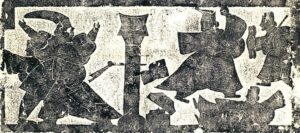Qin Shi Huang Personality Type
First emperor of the Qin Dynasty (r. 221–210 BCE)
Qin Shi Huang (Chinese: 秦始皇; lit. 'First Emperor of Qin', pronunciation ; 259–210 BCE), or Shi Huangdi, was the founder of the Qin dynasty, and first emperor of a unified China. Rather than maintain the title of "king" (王 wáng) borne by the previous Shang and Zhou rulers, he ruled as the First Emperor (始皇帝) of the Qin dynasty from 221 to 210 BCE. His self-invented title "emperor" (皇帝 huángdì) would continue to be borne by Chinese rulers for the next two millennia. Historically, he was often portrayed as a tyrannical ruler and strict Legalist, in part from the Han dynasty's scathing assessments of him. Since the mid 20th-century, scholars have begun to question this evaluation, inciting considerable discussion on the actual nature of his policies and reforms. Regardless, according to sinologist Michael Loewe "few would contest the view that the achievements of his reign have exercised a paramount influence on the whole of China's subsequent history, marking the start of an epoch that closed in 1911".Born in the Zhao state capital Handan, as Ying Zheng (嬴政) or Zhao Zheng (趙政), his parents were King Zhuangxiang of Qin and Lady Zhao. The wealthy merchant Lü Buwei assisted him in succeeding his father as the ruler of Qin, after which he became Zheng, King of Qin (秦王政). When he was 38, the Qin had conquered all of the other Warring States and unified all of China in 221 BCE, resulting in his ascension as China's first emperor. During his reign, his generals greatly expanded the size of the Chinese state: campaigns south of Chu permanently added the Yue lands of Hunan and Guangdong to the Chinese cultural orbit, and campaigns in Inner Asia conquered the Ordos Loop from the nomadic Xiongnu, although those would later lead to the Xiongnu's confederation under Modu Chanyu.

